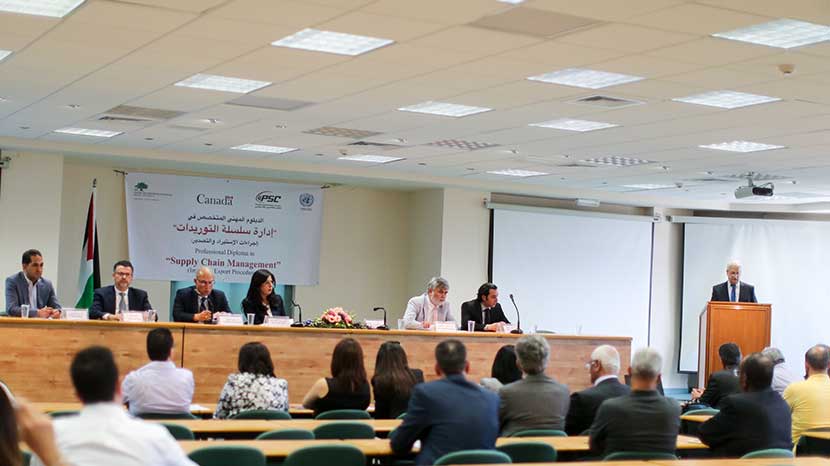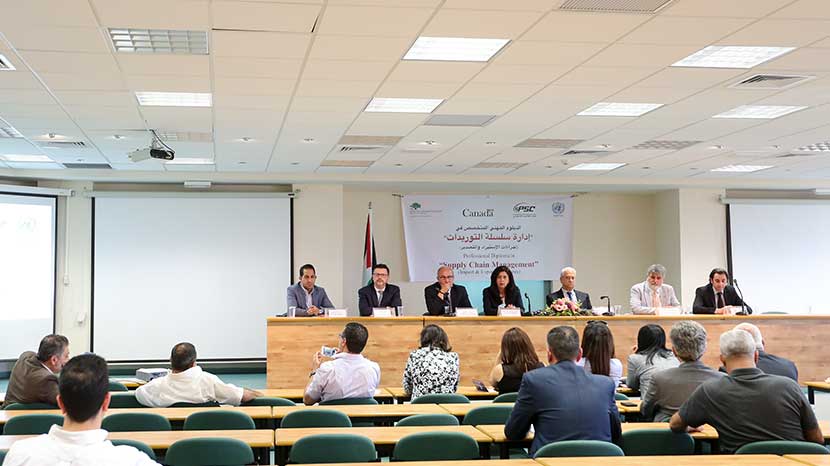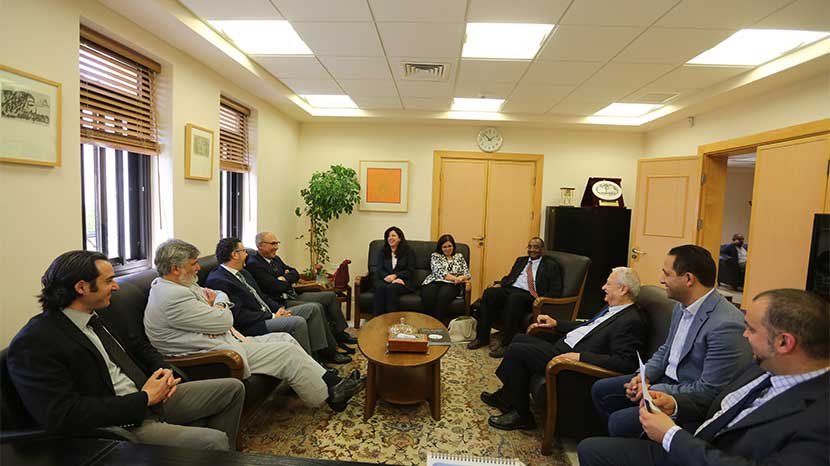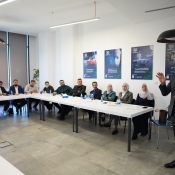New Diploma Program on “Supply Chain Management” offered at BZU
Birzeit University and the Palestinian Shippers’ Council are offering a new Professional Training Diploma on “Supply Chain Management”. The Diploma is a joint program between the Center of Continuing Education at Birzeit University and the Palestinian Shippers’ Council.
The new diploma is funded by the Canadian Government, in cooperation with the Ministry of National Economy, and the United Nations Conference on Trade and Development.
Birzeit University President Abdullatif Abuhijleh said that this new program is tailored to the needs of the PSC members and Palestinian traders in public and the private sectors, and seeks to provide comprehensive knowledge in all aspects of import and export management.
Abuhijleh assured that the university is committed to developing modern and professional diplomas that enhance the institutional structure and its overall performance.
The Chairman of the Palestinian Shippers’ Council Hani Qurt said that the knowledge gained through this program will contribute in the efforts of development a self-sufficient national economy that is not dependent on other economies or states. The program, according to Qurt, gained an accreditation from the Ministry of Education and Higher Education after years of hard work with all partners.
The Representative of Canada to the Palestinian Authority Douglas Scott Proudfoot said, “Such activities fit in perfectly with our new strategy to contribute in the efforts of sustainable development.”
“This diploma will offer a certificate that will provide Palestinian corporates with a comprehensive knowledge on import and export management. New opportunities will be offered for Palestinians; jobs, better trade interaction and economic development.”
The Minister of Economics Abeer Odeh said that this joint program reflects our solid ties between the public and private sector and the academic institutions, which aims at fulfilling the needs of the local market.
Odeh assured that the national strategy for developing the economy rely on the ability of the private sector in defining the needs and skills that are needed for the market. She also alluded to the role of globalization and the changes in the global economy that direct us towards change our academic pedagogies and forms of economies.
The representative of the United Nations Conference on Trade and Development Mahmoud Khafif talked about the challenges that have faced this project, including the lack of local competencies in the related fields, in addition to the difficult political situation that imposes high prices on the export and import transactions.
The Diploma will be delivered by professional trainers in 8 separate 40 hour stand-alone courses or as part of a multi-course certificate program of 320 hours.









